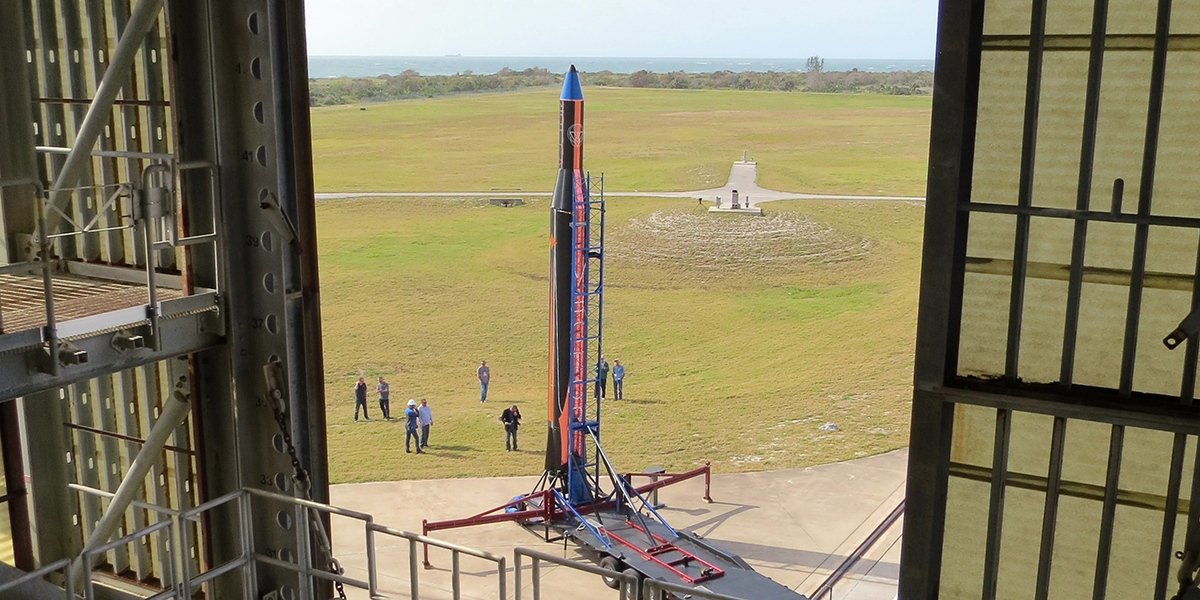Updated Jan. 6 at 4:02 p.m.
The Department of Defense is concerned a proposed spaceport in Camden County, Georgia, might endanger American foreign policy or national security, according to a letter the Federal Aviation Administration sent to Camden on Monday.
The U.S. Navy operates Naval Submarine Base Kings Bay, roughly 10 miles south of the proposed spaceport site. Kings Bay is the East Coast home of the military’s ballistic missile nuclear submarines.
Per the letter obtained by WABE, written by FAA official Kenneth Wong, the military “has concerns that the proximity of launch operations to a vital U.S. Navy base might jeopardize foreign policy or national security interests of the United States.”
Navy Region Southeast Public Affairs Officer Arwen FitzGerald said the navy’s “concerns are fully expressed in the comments outlined in Navy Region Southeast’s Draft Environmental Impact Statement.”
In official comments submitted to the FAA in June of 2018, the Navy listed several questions and outstanding issues with the proposed spaceport.
It warned at the time that Camden’s spaceport plan did not “address potential impacts to military training and vessel movements” within the navy’s designated air and sea space.
It also wrote: “[The proposal] does not address risk concerns or probabilities related to failed vehicle launch and landings….What is the probability a failed launch or landing will occur outside of the [proposed] closure boundary?”
The FAA letter on Monday was in acknowledgment of the county’s request to pause its licensing application to switch from medium-to-large rockets to small rockets. According to the agency, small launch vehicles can lift up to 5,000 pounds into space.
In a press release Thursday, Camden County Administrator Steve Howard said of the change, “The space industry has progressed dramatically since we started this process. Smaller launch vehicles and small internet and defense satellites have become far and away the biggest market segment for Spaceport Camden.”
According to internal FAA emails reviewed by WABE, the county for years did not provide the agency with some of the information required to ensure safe launches medium-to-large rockets during the environmental review process.
In a statement Thursday, the FAA said the agency “has made no determination on Camden’s launch site license, and cannot comment on Camden County’s initial application. … The FAA will wait for further documentation and plans to conduct a detailed public safety analysis of the County’s revised submission, and will base the decision on the results of that analysis.”
Unresolved ‘Issues/Concerns’
In Monday’s letter, Wong detailed two other unresolved “issues/concerns” that the FAA has with Camden’s application: risk of fire to Little Cumberland and big Cumberland Islands, and the county’s incomplete environmental review process.
Wong wrote, “A launch accident may cause an uncontrollable fire on LCI [Little Cumberland Island] or Big Cumberland Island. Access to LCI for firefighting and egress from LCI for evacuation are limited.”
Fire and danger to private homes and population on the two barrier islands beneath the spaceport’s proposed rocket trajectories have been consistent concerns of some homeowners on the islands.
The incomplete environmental review process refers to what the county has been working on for four years: an environmental impact statement, which is required of projects that could significantly affect the human environment by the National Environmental Policy Act.
Camden’s Draft Environmental Impact Statement, released in March 2018, prompted comments from members of the public and federal agencies, including the above-mentioned comments from the Navy and 15 pages of comments from the Department of the Interior, which manages Cumberland Island National Seashore.
In October, the agency informed the county of three missing components needed to complete the environmental review, related again to risks to Little Cumberland and Cumberland Islands, as well as agreements and reports needed from the U.S. Coast Guard and the Georgia Department of Natural Resources.
The FAA was to release an official report on this process, a final environmental impact statement, on December 16. The county requested a pause two days before. According to Wong’s letter sent on Monday, by that time, the agency had still not been able to complete that.
Wong closed the letter to Camden by underlining the importance of the three outstanding issues with its application: “Even with the proposed narrowing of your application scope, there is no assurance the FAA will make a favorable license determination in view of the issues raised above.”









